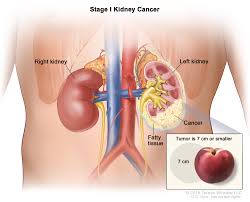Researchers from the Institute of Agricultural Research & Training Ibadan, Oyo State in collaboration with the Raw Material Research & Development Council, University of Ibadan, have produced bio-gel, a cooking fuel, from Moringa stem.
The process of the production was exhibited on Wednesday at the End-of-project workshop on climate change & fossil fuel reduction and environmental conservation using Moringa Oleifera plant at IAR&T.
The workshop was organised by Lifebuilders organisation, an NGO, in collaboration with IAR&T and Raw Material Research & Development Council, Oyo State.
Speaking at the event, the IAR&T Director, Prof. James Adediran, noted that the bio-gel production was consistent with one of the institute’s objectives of mitigating effects of climate change.
He said the use of Biochar for soil fertility management, botanical for plant protection and planting of improved varieties of crops adapted to Southern ecology received attention in the institute’s programmes.
Adediran said: “All our efforts in these areas contribute to the reduction of greenhouse gases.
“Science is now exploring ways out of fossil fuel for an environment friendly source of energy and all hands must be on deck to make a success.”
The Executive Director of Lifebuilders organisation, Chief Grace Oluwatoye, said it decided to invest in Moringa because of the plant’s numerous micronutrients required for the body.
Oluwatoye said: “For the first time in the history of the world we have been able to generate bio-gel from moringa plant.
“The plant’s potential ought to be explored; so, we call on other researchers to join hands to escalate the breakthrough.
“Through this we can generate a lot of jobs for rural and young people, we have the POP sector, organic fertiliser industry, etc from it; investors, who could use the waste product of the plant should invest in it.
“This will earn Nigeria a lot of money that will save its foreign exchange.”
She emphasised that the organisation was registered for health and sustainable development interventions targeted at young people and rural dwellers.
She said: “Part of our goals is to enhance self-employment among women and out-of-school youths in the non-formal sector including agriculture and other vocations of their choice.”
Earlier, the Project Implementation Committee Chairman, Prof. Lateef Taiwo, said the project was funded by UNDP and commended the NGO for deeming it fit to embark on such a project.
Taiwo said: “This is the end of the first phase of the project, we have put in another proposal to UNDP for the next stage; we are optimistic that they will support us and we will make more progress.”
R&D Health Researchers produce bio-gel cooking fuel from moringa plant



